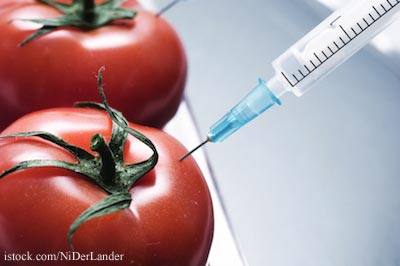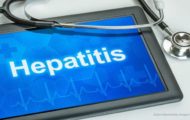The European Network of Scientists for Social and Environmental Responsibility (ENSSER) has released a statement that there is “no scientific consensus on GMO safety.” The statement was signed by more than 90 scientists, academics, and doctors.
 The statement was issued in response to comments by some GM seed developers, scientists, and journalists who have said there is a consensus on GMO safety and that the debate on this topic is over. The signers say that “the claim that [scientific consensus] does exist is misleading and misrepresents the currently available scientific evidence and the broad diversity of opinion among scientists on this issue. Moreover, the claim encourages a climate of complacency that could lead to a lack of regulatory and scientific rigour and appropriate caution, potentially endangering the health of humans, animals, and the environment.”
The statement was issued in response to comments by some GM seed developers, scientists, and journalists who have said there is a consensus on GMO safety and that the debate on this topic is over. The signers say that “the claim that [scientific consensus] does exist is misleading and misrepresents the currently available scientific evidence and the broad diversity of opinion among scientists on this issue. Moreover, the claim encourages a climate of complacency that could lead to a lack of regulatory and scientific rigour and appropriate caution, potentially endangering the health of humans, animals, and the environment.”
The scientists say that rigorous independent studies investigating the safety of GMO foods would involve animal feeding studies in which one group is fed GMO food and another fed an equivalent non-GMO diet. But those studies are very rare. And when they have been conducted, some have revealed toxic effects in the GMO-fed animals. More troubling, those concerns have not been followed up by research that could confirm or refute the original findings.
There are no epidemiological studies investigating potential effects of GMO foods on human health. One common claim is that “trillions of GM meals” have been eaten with no ill effects. But without epidemiological studies, this claim has no merit. Diseases such as cancer take a long time to develop, and it is difficult to trace their development back to a cause. In addition, GM foods are not labeled in America, so it is scientifically impossible to trace or study patterns of consumption and their potential impact.
Claims that scientific and government bodies endorse GMO safety are exaggerated or inaccurate. An expert panel of the Royal Society of Canada issued a report that was very critical of the regulatory system for GMO foods in that country. The report said it was “scientifically unjustifiable” to presume that GMO foods are safe without rigorous scientific testing. And a report by the British Medical Association concluded that “many unanswered questions remain” about the long-term effects of GMO foods on human health and the environment. The American Medical Association’s Council on Science and Public Health said there is a “small potential for adverse events due to horizontal gene transfer, allergenicity, and toxicity”, but since GMO crops are so widespread, this “small potential” could be very significant.
EU research doesn’t provide reliable evidence of GMO food safety, and several hundred studies do not demonstrate safety. Most of these studies are not toxicological animal feeding studies of the type that actually provide health information. Some of the studies focus on milk yield and weight gain instead of looking at potentially toxic side effects. And many of the studies were conducted over short periods of the animals’ lifespan, so they can’t detect long-term health problems. Of the five animal feeding studies referenced in the SAFOTEST report, none tests the GMO food longer than 90 days; all found differences in GMO-fed animals, and none reached conclusions on the safety of GMO foods.
The reports concludes that “the totality of scientific research outcomes in the field of GM crop safety is nuanced, complex, often contradictory or inconclusive, confounded by researchers’ choices, assumptions, and funding sources, and in general, has raised more questions than it has currently answered. Decisions on the future of our food and agriculture should not be based on misleading and misrepresentative claims that a ‘scientific consensus’ exists on GMO safety.”





Thanks to these experts for speaking up despite the intimidation practiced by the GM industry and its pro-GM warriors against those who disagree with them. There is now sufficient independent evidence from peer-reviewed and published research to conclude that some varieties of genetically manipulated soy, corn and canola harm experimental animals, and maybe also the people who unwittingly eat GM ingredients. The GM industry’s blanket opposition to the full and honest labelling of GM food products strongly suggests that they are hiding risks and hazards. Our regulators are pathetically weak and unscientific in their assessments of GM food ingredients, though they have no established record of safe use, as the ENSSER scientists confirm.
Many of us discovered years ago, that GM foods are not safe for us, and we get sick after eating anything that contains them. Some of us made complaints and were totally ignored. Of course, we can’t prove they make us sick, and can’t even prove that we ever ate them. No labels, no testing for safety, no tracking of illnesses that may be caused by GMOs, and no tests for any illnesses, allergies, or adverse reactions they might cause, anyway. If they won’t look for problems, they won’t find any. That doesn’t mean there aren’t any. ‘They’ said Transfat was safe, and so was Vioxx, HRT, Statins, Tobacco, and a whole lot of other things, that were not safe. After enough people are harmed or killed, ‘they’ say oops, maybe they are not so safe after all. Of course, that’s after a lot of people paid a high price for ‘they’ being wrong.